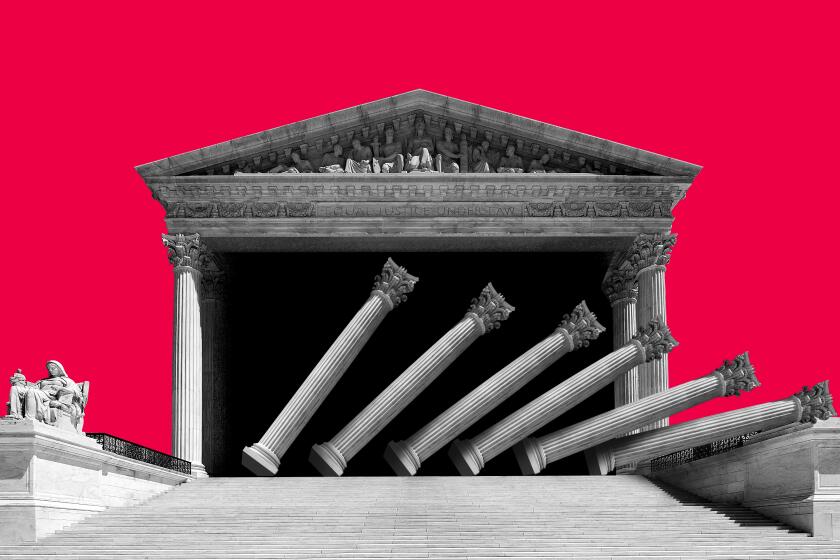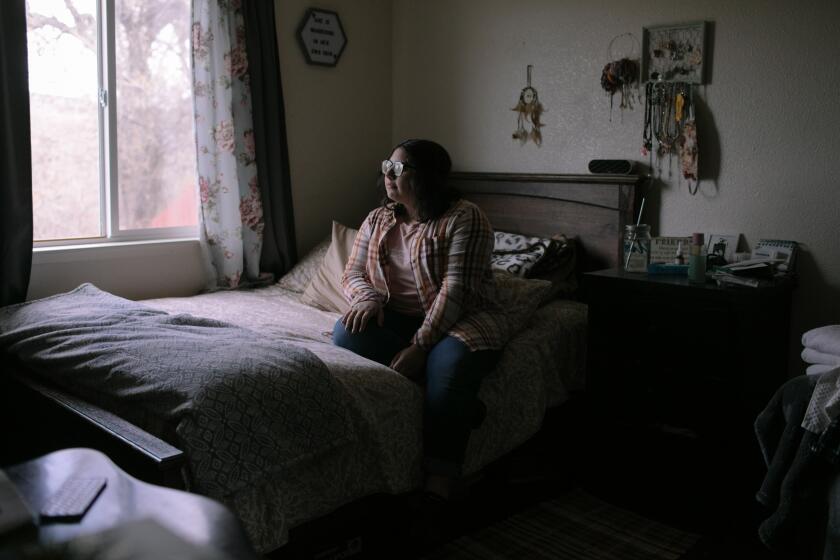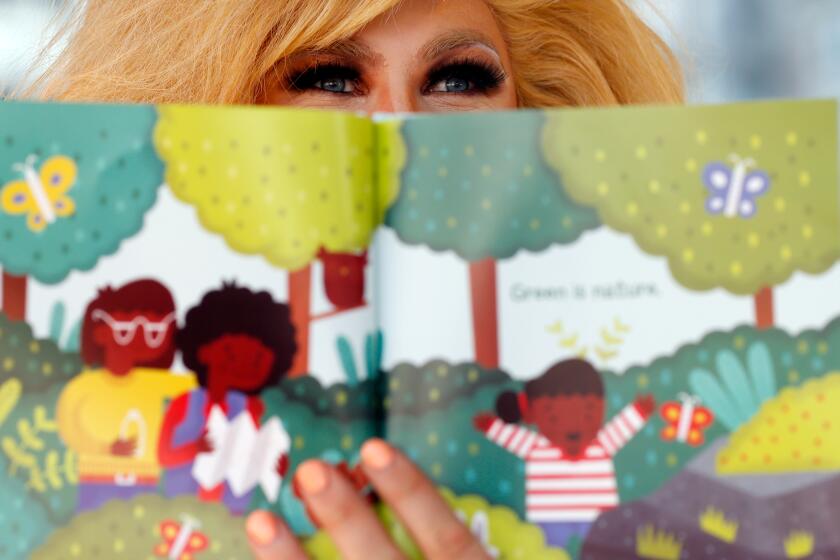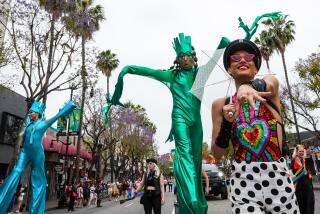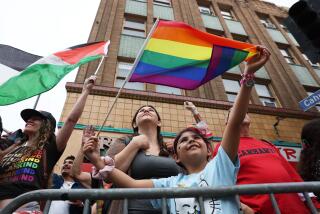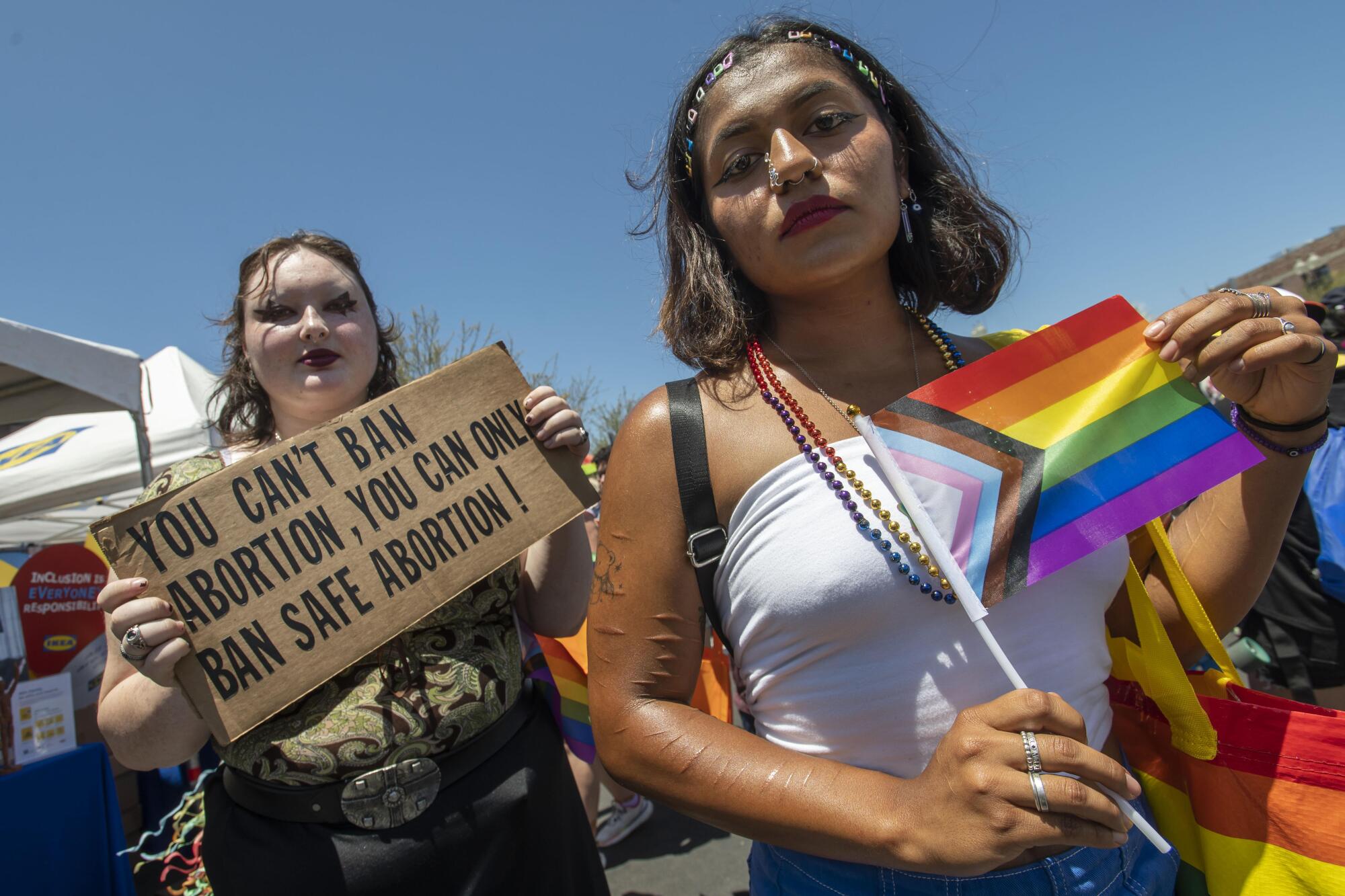
The OC Pride parade was short and sweet, with a procession of rainbow-adorned floats, dancing revelers and banner-waving activists filing past downtown Santa Ana’s turn-of-the-century storefronts in about half an hour.
The celebratory atmosphere made Jeffrey Dixson take stock of the rights and freedoms that fellow members of the LGBTQ community have struggled for so long to secure and also how quickly Supreme Court justices and lawmakers can snatch them all away.
“That’s what they’re doing to our choices — blink and you’ll miss them,” said Dixson, a 40-year-old retired certified nursing assistant from Signal Hill who dreams of transitioning to female. “Americans really need to wake up.”
Dixson’s sentiment was shared by many at the parade, which took place a day after the Supreme Court overturned Roe vs. Wade, the landmark 1973 ruling legalizing abortion nationwide. The 5-4 decision was a sweeping rebuke of reproductive rights that could have far-reaching implications.
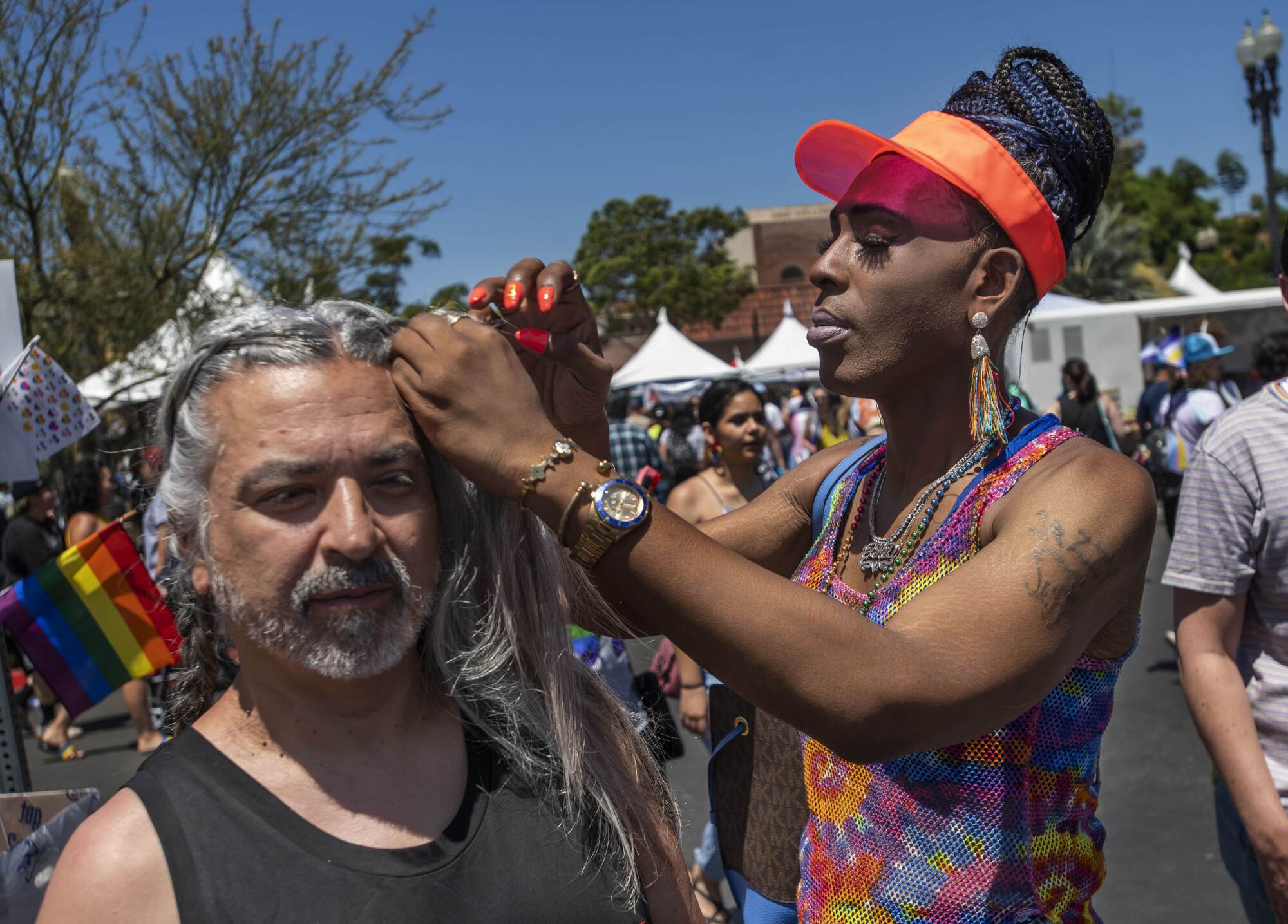
Advocates for the queer community fear the court’s conservative majority will target LGBTQ people next, possibly by reversing earlier rulings such as legalized same-sex intimacy and same-sex marriage.
Despite those concerns, the mood at the parade remained festive as hundreds of people lined the streets and shimmied to songs blaring from loudspeakers whose lyrics were all about uplift, defiance and embracing who you are even when the world rejects you.
MY COUNTRY
As a Black man in America, I’ve always struggled to embrace a country that promotes the ideals of justice and equality but never fully owns up to its dark history of bigotry, inequality and injustice.
Now, more than any time in recent history, the nation seems divided over this enduring contradiction as we confront the distance between aspiration and reality. Join me as I explore the things that bind us, make sense of the things that tear us apart and search for signs of healing. This is part of an ongoing series we’re calling “My Country.”
— Tyrone Beason
Aretha Franklin could be heard singing that self-pride is a “deeper love” that we all should aim for. As Whitney Houston sang, “It’s not right, but it’s OK. I’m going to make it anyway,” the classic tune seemed to capture the spirit of perseverance that has sustained members of the LGBTQ community through culture wars past and present.
Gloria Gaynor gave voice to the LGBTQ’s battle against hate and discrimination as she sang the chorus to her anthem “I Will Survive.”
Many in the crowd wore T-shirts that proclaimed, “Love is Love,” while others held signs calling for women’s equality and federal abortion protections.
Alejandra Barba, 20, came simply to be present and show common cause at a time when women, LGBTQ people and people of color seem to be under assault.
Black feminist author Barbara Smith fears the Supreme Court’s expected ruling against abortion rights will be just the beginning.
“Republicans do this thing where they say, ‘Every life matters,’ and that people are entitled to their privacy, but what they’re f— with is my privacy, my decision about whether or not to have a child,” said Barba, a junior at Chapman University in nearby Orange.
“The things that they’re saying don’t line up with the issues that affect everyday people.”
Neither Barba nor her friend Elleana Tanner, a 19-year-old freshman at Irvine Valley College, feel confident that the Democrats in the nation’s capital — President Biden, lawmakers in Congress — will be able to follow through on their vows to counter the court’s ruling by codifying abortion rights at the federal level.
And it’s this sense of futility that saddens and infuriates Tanner the most.
“Congress is our last resort, and I don’t think anything is going to happen,” she said, noting the political dysfunction in Washington.
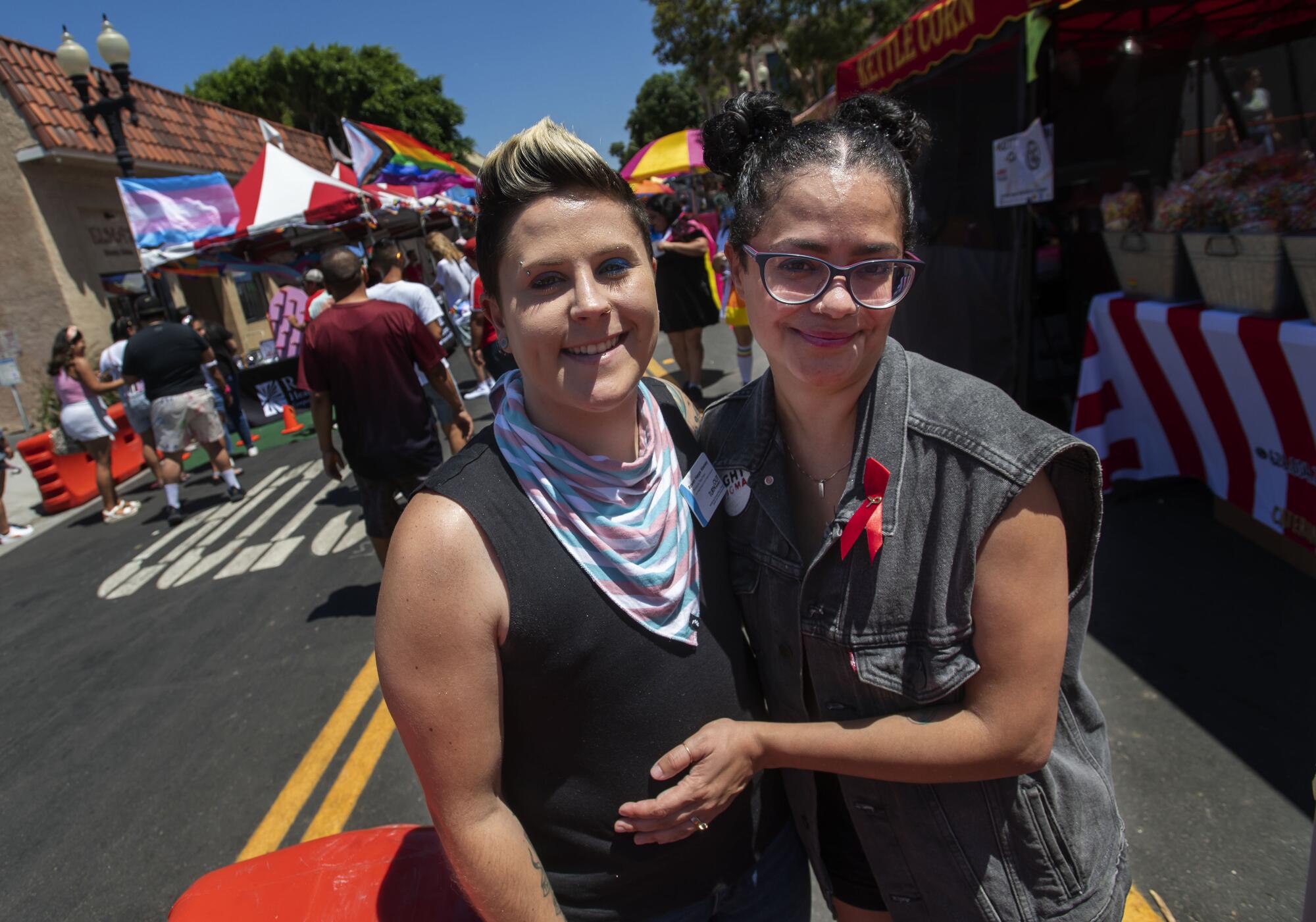
Yashia Garcia drove to the parade from San Diego to help her partner Rowan Hepps Keeney at a pride booth. Wearing a pin on her denim vest that read “Fight stigma,” she said she sobbed Friday morning after reading the news of the court’s ruling.
Here she is, a 36-year-old proud Afro-Latina who works as an assistant in a sexology clinic and who is part of a polyamorous relationship with Keeney and a transgender husband. She’s living exactly how she chooses. Yet with the court’s abortion ruling signaling that LGBTQ Americans could be next, Garcia senses that she and the rest of the nation have suddenly been catapulted back to a more repressive time.
The conflict over ethnic studies reveals painful truths in Paso Robles.
“My mother, who came to the country as an immigrant from the Dominican Republic in 1978, had more rights than I do today,” Garcia said. “I don’t have the word to describe how that feels. Well, I do, but they’re all curse words.
“I’m not so much concerned for myself as a resident of California, a state that has abortion protections, but for all of those women and nonbinary people in the Midwest and the South who are not going to have that access,” Garcia said.
Dixson stood tall in a mesh dress knitted in rainbow hues, a braided bun hairdo and pink visor. Trying to stay upbeat among the partying pride crowd was difficult, given the pressures now bearing down on Americans who’ve historically had to fight to be who they are and be treated as equal.
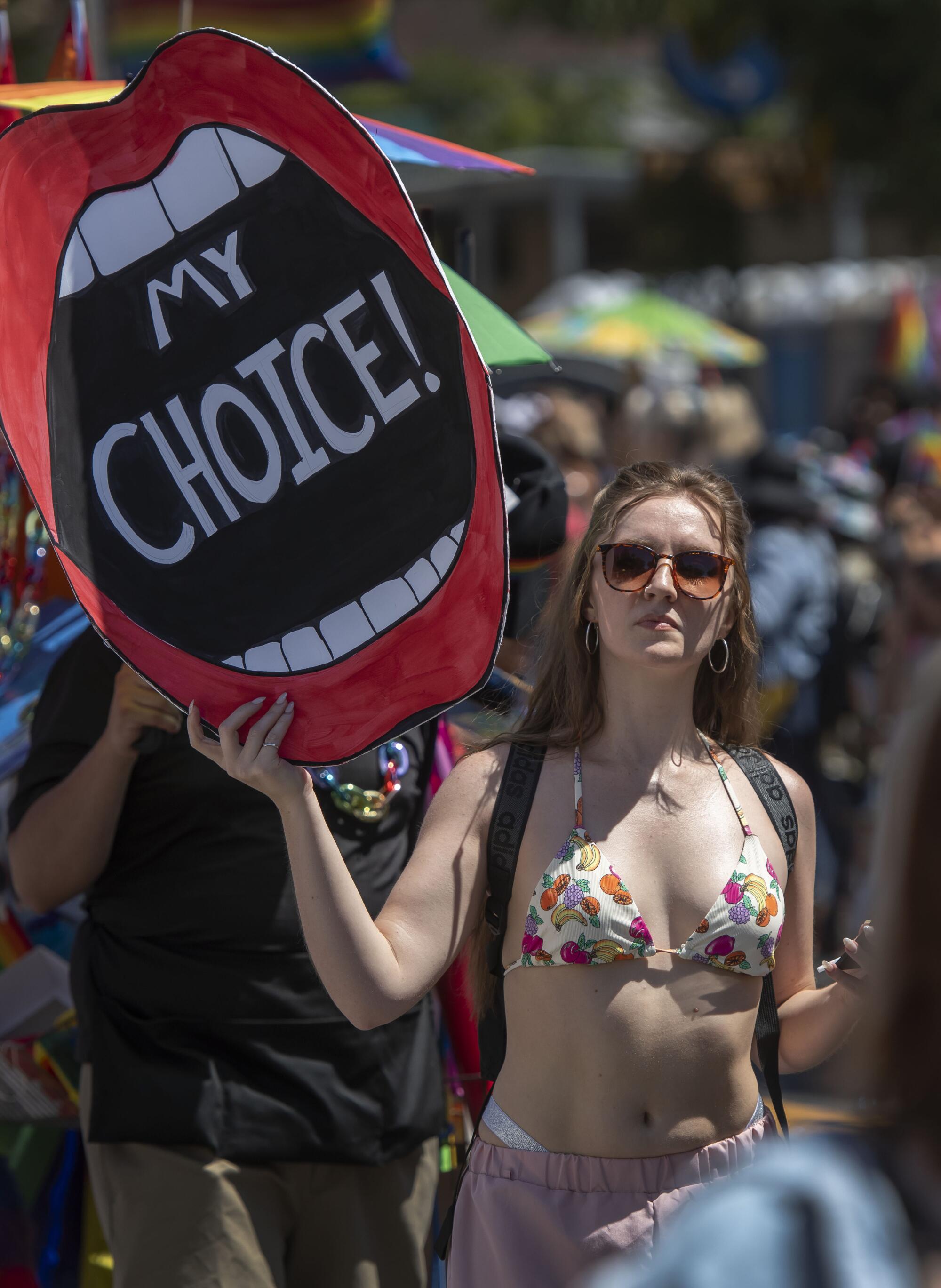
Conservative Justice Clarence Thomas appeared to telegraph what’s ahead for people in the queer community like Dixson by seeming to invite challenges to other civil liberties in his concurring opinion on the abortion ruling. Thomas rejected the long-held idea that the U.S. Constitution’s guarantees of due process and equal protection under the law shields citizens from persecution because of their personal life decisions.
He wrote that previous court precedents that rely heavily on this implicit right to privacy, including the 2015 ruling that legalized same-sex marriage and the 2003 ruling that legalized same-sex intimacy, were “erroneous.” Thomas went on to say those decisions granting rights that are not explicitly spelled out in the Constitution should be reconsidered in future Supreme Court challenges.
Experts say children are at risk from a surge in anti-LGBTQ legislation.
Dixson worries that because of this broad language, challenges to civil liberties won’t stop with abortion and LGBTQ rights: “What next? Are they going to take away my rights because I’m Black?”
Garcia was also taken aback by the harshness of Thomas’ tone.
“We’ve always been marginalized in this community,” she said. “But there’s something about seeing it unfold that is just sickening.”
Even before the court overturned Roe vs. Wade, the LGBTQ community was already on edge because of recent instances of harassment from far-right groups that have targeted pride-related events in the Bay Area, Idaho and elsewhere.
Lawmakers in Florida, Texas and other states have singled out the LGBTQ community in hundreds of education bills that ban transgender athletes from competing on sports teams and outlaw classroom lessons on sexual orientation and gender identity, among other restrictions.
Authorities are investigating the incident as a potential hate crime after five men described as members of the Proud Boys stormed the library.
Tanner said that given the hostile climate that LGBTQ Americans face, it was surprising that there wasn’t a more somber mood or more street protests at the OC Pride parade. But Garcia said she could understand why many in the crowd seemed determined to focus on celebration and community rather than dwell on the negative.
The fact is, she said, the courts and lawmakers won’t force her back into the closet or to give up advocating for women’s rights, no matter what rulings they hand down or laws they pass. At least at OC Pride, there was a chance to take in the beauty and diversity of the LGBTQ community, an opportunity to feel good knowing there’s strength in numbers.
“I think we deserve to have a space for joy,” Garcia said, “because we’re always fighting.”
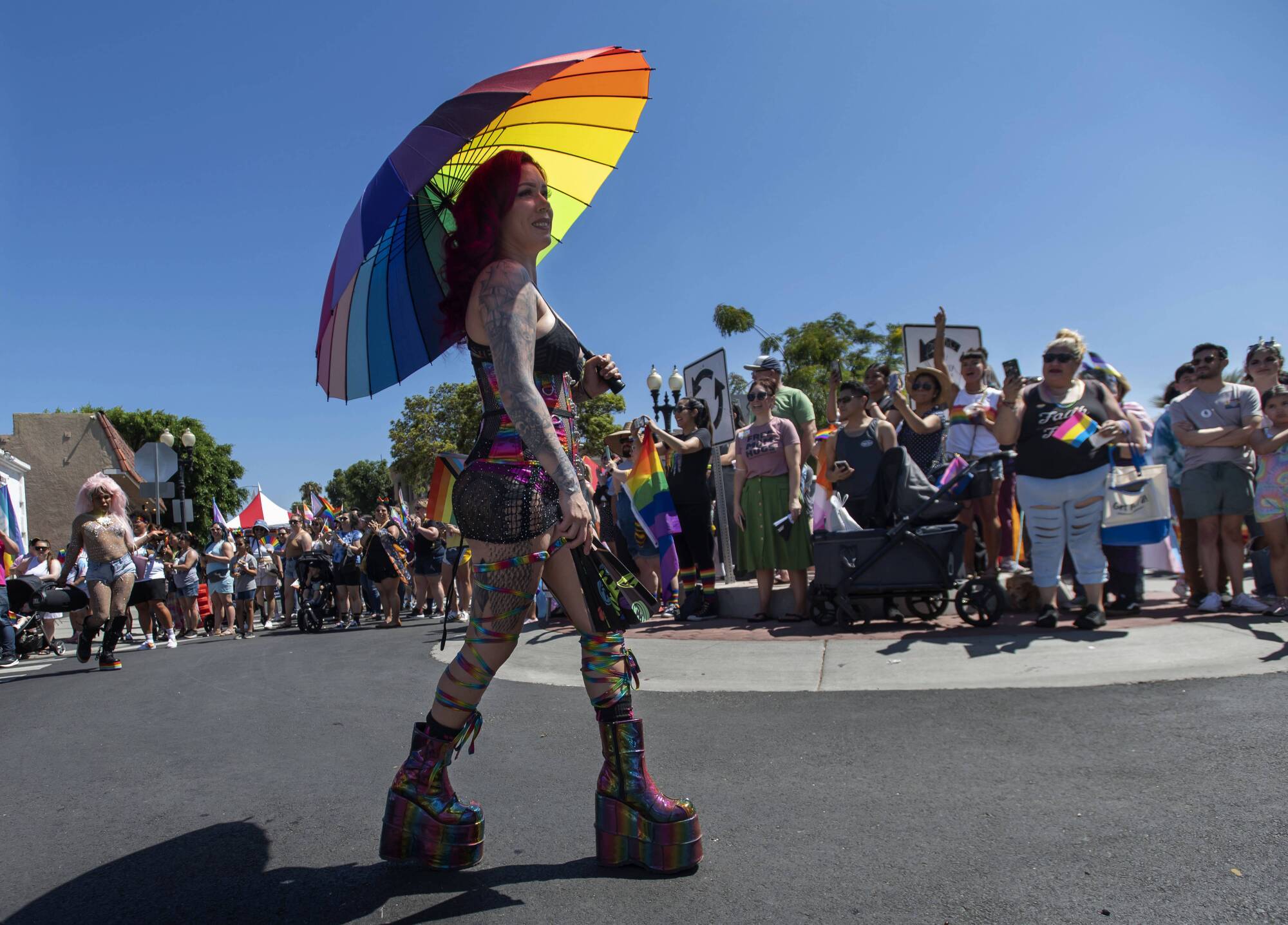
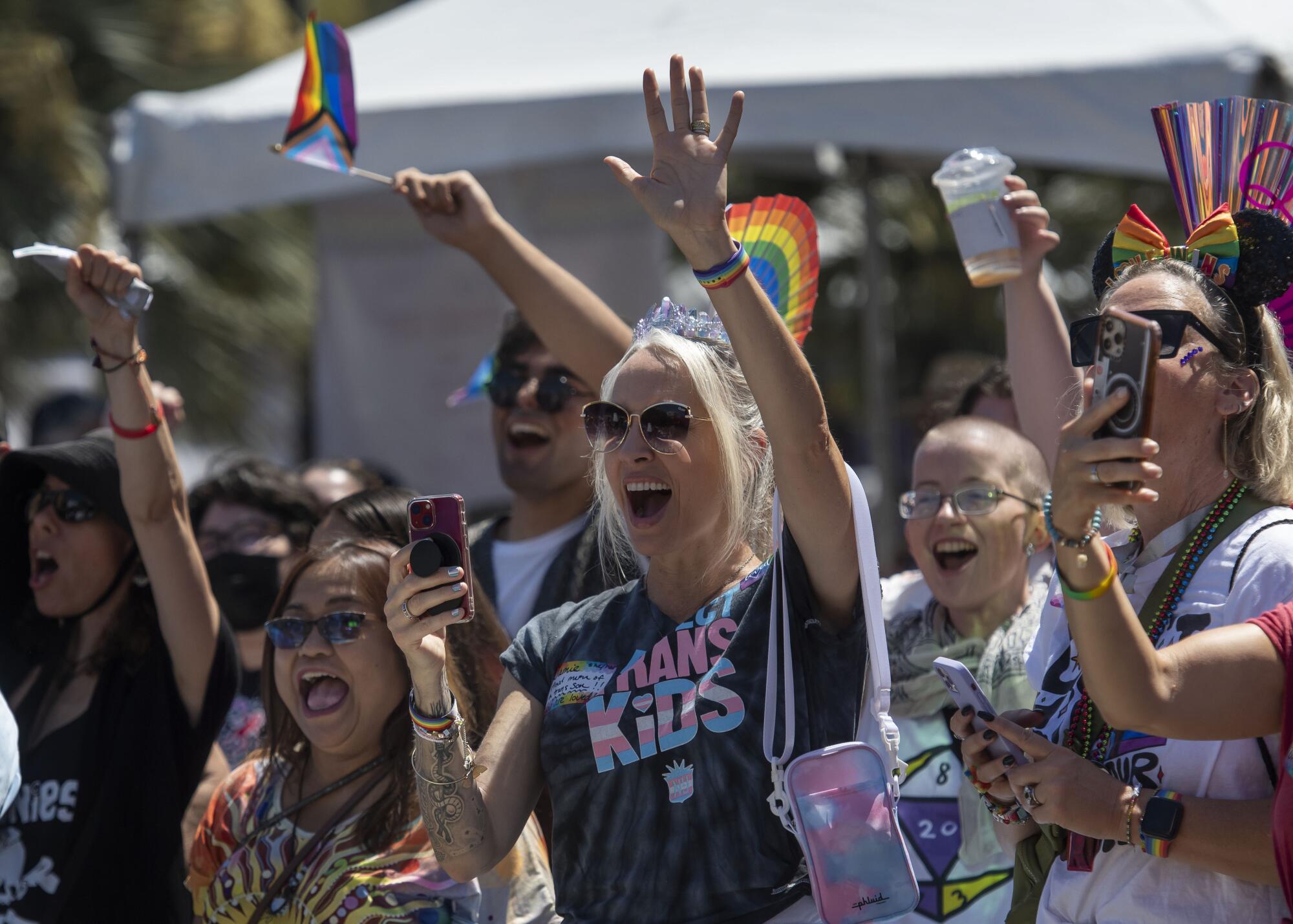
More to Read
Get the L.A. Times Politics newsletter
Deeply reported insights into legislation, politics and policy from Sacramento, Washington and beyond. In your inbox three times per week.
You may occasionally receive promotional content from the Los Angeles Times.
